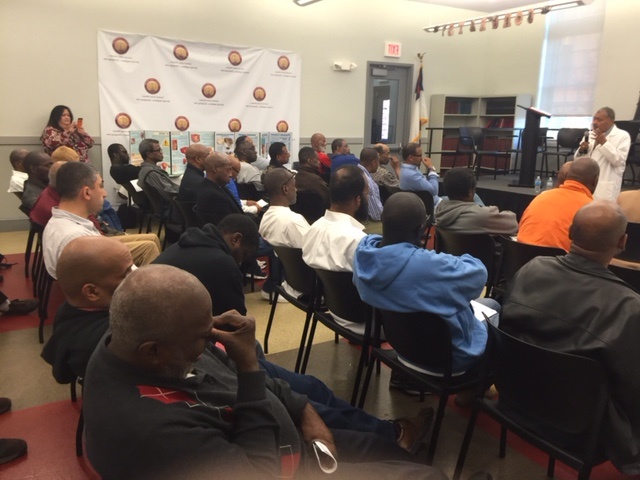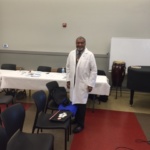AMCS Information Session on Prostate Cancer at Central Union Mission
Dr. Jackson Davis, a member of the Medico-Chirurgical Society spoke to residents at the Central Union Mission on preventive measures regarding prostate cancer. Prostate cancer is the most common cancer among men (after skin cancer), but it can often be treated successfully. If you have prostate cancer or are close to someone who does, knowing what to expect can help you cope. Here’s some of the information that we shared with the residents of Central Union Mission.
Prostate cancer begins when cells in the prostate gland start to grow uncontrollably. The prostate is a gland found only in males. It makes some of the fluid that is part of semen. The prostate is below the bladder and in front of the rectum. The size of the prostate changes with age. In younger men, it is about the size of a walnut, but it can be much larger in older men. Just behind the prostate are glands called seminal vesicles that make most of the fluid for semen. The urethra, which is the tube that carries urine and semen out of the body through the penis, goes through the center of the prostate.

Other types of prostate cancer include:
- Sarcomas
- Small cell carcinomas
- Neuroendocrine tumors (other than small cell carcinomas)
- Transitional cell carcinomas
Many of the risk factors for prostate cancer, such as your age, race, and family history can’t be controlled. But there are some things you can do that might lower your risk of prostate cancer.
Prostate cancer can often be found early using a simple blood test, but it’s not clear if the benefits of testing all men for prostate cancer outweigh the risks, such as finding (and treating) cancers that probably never would have caused any problems. Because of this, it’s important to talk to a health care provider about the uncertainties, risks, and potential benefits of prostate cancer screening before deciding whether or not to be tested.





